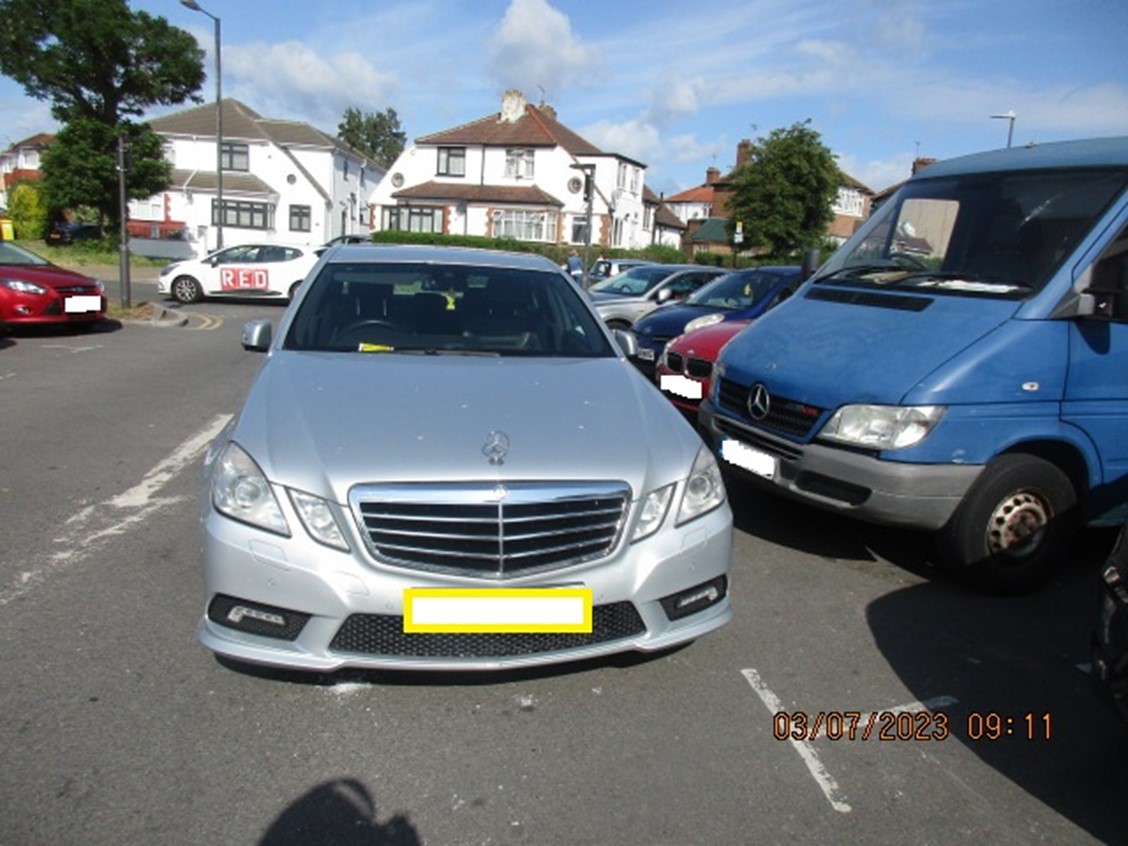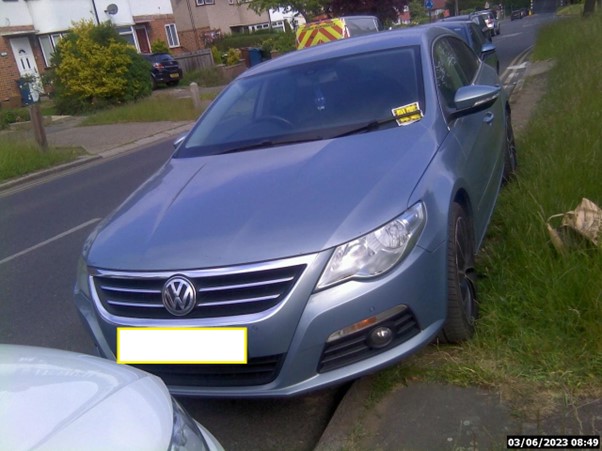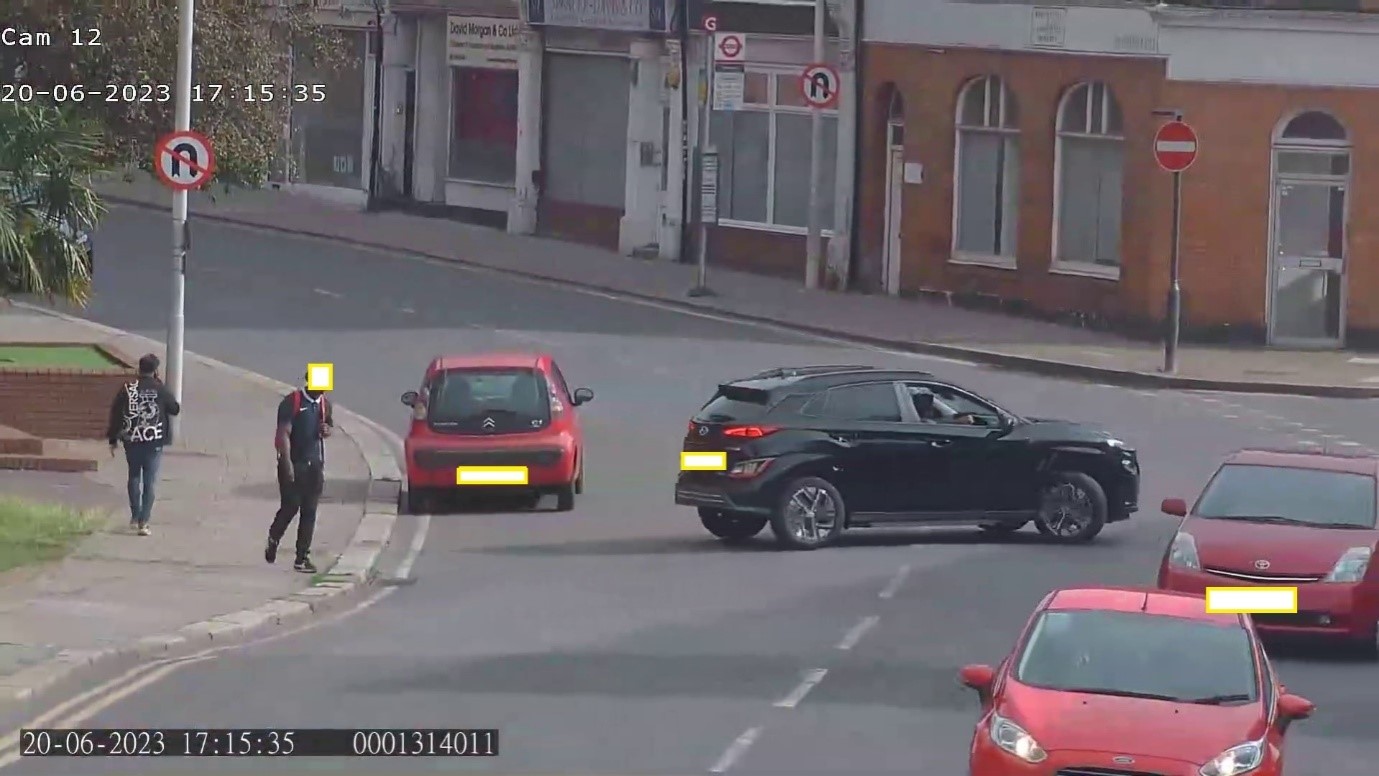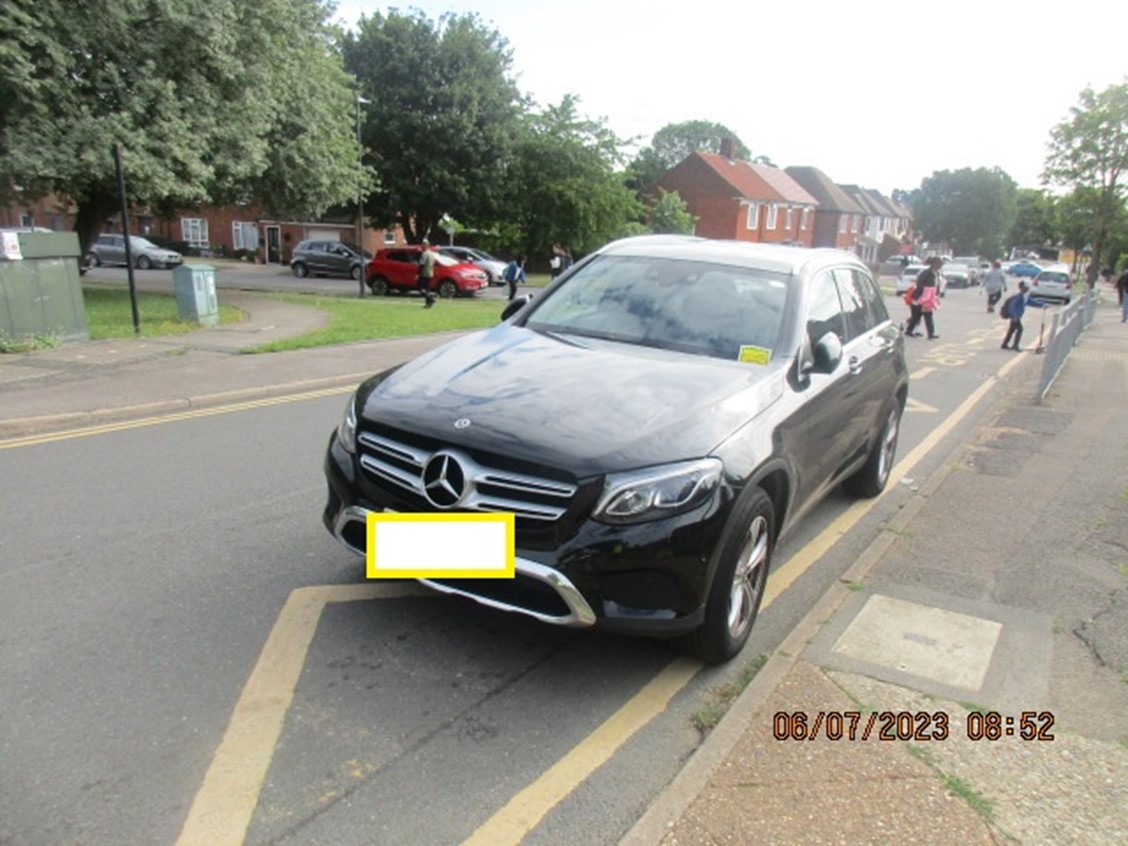FAQs
- Parking in a disabled bay without a Blue Badge
- Parking on pedestrian zig-zags or school “keep clear” markings
- Parking on double yellow lines
- Parking where this causes an obstruction or danger to other road users
- Civil Enforcement Officer (CEO) issued
- CCTV issued
- Bus lane contraventions
- Moving traffic contraventions
- Issued when a CEO is prevented from serving because the vehicle is driven away
- Issued when a CEO is physically prevented from serving
Reduce nuisance and inconsiderate parking
Improve road safety and visibility
Reduce congestion and air pollution
Make parking fairer and more consistent across London
Why is a PCN issued?
Penalty Charge Notices (PCNs) are issued when a driver parks in contravention of a traffic order or drives in contravention of traffic signs, such as for bus lane and moving traffic contraventions.
A PCN is issued when a driver breaks a traffic order — for example, driving in a bus lane during restricted hours or parking on double yellow lines.
Parking PCNs in the borough currently range from £90 to £140 (Band B) depending on the severity of the contravention. These charges are reduced by 50% if paid within 14 days (or 21 days for certain contraventions, as stated on the PCN).
PCNs must be paid but do not result in a criminal record or points on a driving licence.
Who is responsible for issuing PCNs?
Since July 1994, local councils in London, including the London Borough of Harrow, have been responsible for parking and traffic enforcement, taking over from the Metropolitan Police. The primary parking legislation is set out in the Traffic Management Act 2004 (previously the Road Traffic Act 1991). Other legislation covers additional enforcement areas, such as CCTV enforcement.
Where does the council enforce PCNs?
The council enforces parking restrictions throughout the borough with the exception of private roads and the M1 motorway.
How are PCNs enforced?
The council uses a combination of on-street enforcement by CEOs (on foot, in cars and on mopeds) and CCTV enforcement to monitor and address parking and traffic contraventions across the borough.
Where are PCNs issued?
PCNs can be issued for a range of contraventions, including:
What are the different types of PCNs?
There are six different types of PCNs:
All but CEO-issued PCNs are sent by post after the council obtains the registered keeper details from the DVLA.
All PCNs follow statutory timescales and offer a 50% discount if payment is received within the specified time.
Examples of contraventions in Harrow
These are examples of illegal and inconsiderate parking and driving that continue to happen despite enforcement:
 Driving in a bus lane (code 34)
Driving in a bus lane (code 34)  Parking in a disabled bay (code 40)
Parking in a disabled bay (code 40)
 Double parking (code 26)
Double parking (code 26)
 Parking on a grass verge (code 62)
Parking on a grass verge (code 62)
 Carrying out a U-turn where prohibited (code 50)
Carrying out a U-turn where prohibited (code 50)
 Parking on school “keep clear” markings (code 48)
Parking on school “keep clear” markings (code 48)
Are current PCN tariffs acting as a deterrent?
Over the past eight years, despite enforcement, there has not been a significant reduction in the number of PCNs being issued.
Table 1, below, displays the number of Parking PCNs (Higher Level and Lower Level Parking Contraventions) issued in the borough. This shows that the current Band B tariffs may not be acting as a strong enough deterrent.
Table 1: Parking Penalty Charge Notices (PCNs) Issued between 2018 to 2025 for Higher and Lower Level Contraventions
Year | Parking PCNs | Total PCNs Issued | |
Higher Level | Lower Level | ||
2018 | 77,511 | 26,667 | 104,178 |
2019 | 72,303 | 22,834 | 95,142 |
2020 | 44,783 | 15,855 | 60,638 |
2021 | 58,029 | 20,595 | 78,624 |
2022 | 63,761 | 22,580 | 86,341 |
2023 | 79,008 | 24,890 | 103,898 |
2024 | 82,835 | 30,953 | 113,788 |
2025 (January to July inclusive) | 51,705 | 18,713 | 70,418 |
The council operates 69 Controlled Parking Zones (CPZs) and 5 Council Housing car parks across the borough and enforces waiting and loading restrictions outside CPZs. Enforcement also covers over 80 school sites, where inconsiderate parking is one of the most common complaints from residents.
Enforcement is carried out by 48 Civil Enforcement Officers (CEOs) and a network of over 60 CCTV cameras strategically placed across the borough.
Despite these measures, non-compliance with parking regulations remains high.
Table 2: Parking Penalty Charge Notices (PCNs) Issued Per Month in 2024 and 2025 for Higher and Lower Level Contraventions, Showing Difference and Percentage Change
| Month (January to July inclusive) | ||||||
January | February | March | April | May | June | July | |
2024 | 8,009 | 7,879 | 8,328 | 9,491 | 10,507 | 9,763 | 9,847 |
2025 | 9,284 | 8,844 | 10,126 | 9,440 | 10,545 | 10,853 | 11,236 |
Difference | +1,275 | +965 | +1,798 | -51 | +38 | +1,090 | +1,479 |
% Change | +15.9% | +12.2% | +21.6% | -0.5% | +0.4% | +11.2% | +15.0% |
What changes are you proposing?
We are consulting on proposals to change parking PCN tariffs in Harrow from Band B to Band A. We believe that introducing Band A tariffs will act as a more effective deterrent and reduce the number of incidences of inconsiderate parking.
There will be no change to PCNs issued for moving traffic contraventions, which are already charged at the higher Band A tariff.
Why are you proposing to increase PCN tariffs?
Evidence from other London boroughs shows that higher tariffs reduce the number of PCNs being issued. This suggests that Band A tariffs act as a stronger deterrent and encourage drivers to comply with parking rules.
In Waltham Forest, for example, switching from Band B to Band A tariffs led to a drop of nearly 9,000 PCNs in the first year in the affected area, compared with an increase in PCNs in parts of the borough that stayed on Band B. Haringey also saw a 32% reduction in PCNs after introducing Band A tariffs in certain areas.
By increasing PCN tariffs in Harrow, the council aims to:
